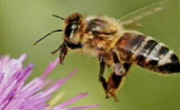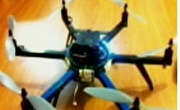본 연구는 특성화고등학생의 비행의 원인을 파악하기 위해 간명함과 높은 설명력으로 많은 관심을 받고 있는 Gottfredson & Hirschi(1990)의 일반이론을 비롯한 사회학습이론, 사회유대 이론 등에 ...
http://chineseinput.net/에서 pinyin(병음)방식으로 중국어를 변환할 수 있습니다.
변환된 중국어를 복사하여 사용하시면 됩니다.
- 中文 을 입력하시려면 zhongwen을 입력하시고 space를누르시면됩니다.
- 北京 을 입력하시려면 beijing을 입력하시고 space를 누르시면 됩니다.
https://www.riss.kr/link?id=A100100482
-
저자
서인석 (공주대학교)

- 발행기관
- 학술지명
- 권호사항
-
발행연도
2014
-
작성언어
Korean
-
주제어
특성화고등학교 ; 비행 ; 자기통제력 ; vocational high school ; delinquency ; self-control
-
KDC
370
-
등재정보
KCI등재
-
자료형태
학술저널
- 발행기관 URL
-
수록면
49-73(25쪽)
-
KCI 피인용횟수
6
- 제공처
-
0
상세조회 -
0
다운로드
부가정보
국문 초록 (Abstract)
본 연구는 특성화고등학생의 비행의 원인을 파악하기 위해 간명함과 높은 설명력으로 많은 관심을 받고 있는 Gottfredson & Hirschi(1990)의 일반이론을 비롯한 사회학습이론, 사회유대 이론 등에 입각하여 연구를 진행 하였다. 일반이론은 자기통제력이라는 하나의 변수가 비행의 원인이며, 자기통제력은 10세 이전에 형성되어 평생 동안 안정성을 가진다고 주장한다. 본 연구에서 한국청소년패널조사(KYPS) 중등패널의 특성화고등학생 표본에 대해 군집분석을 실시한 결과, 특성화고등학생 중 자기통제력의 안정성이 낮은 학생의 비율(41.02%)이 다른 연구의 표본에 비하여 높은 것 으로 나타났다. 이들 학생의 자기통제력 변화의 방향은 감소로 나타났다. 이러한 특성화고등학생들의 자기통 제력 변화의 원인에 대하여 패널분석을 실시한 결과, 비행친구의 수, 부모의 폭력적 양육행동, 학교 부적응 등 이 자기통제력에 영향을 미치는 것으로 나타났다. 이들 영향 변수 중 비행친구의 수는 자기통제력을 매개변수 로 하여 종속변수인 비행에 영향을 미치는 것으로 나타났다. 또 자기통제력이 비행에 중요한 영향을 미치는 것으로 나타났다. 부모의 폭력적 양육행동, 학교 부적응은 비행에 간접적 영향을 미치는 것으로 나타났다. 본 연구의 결과와 같이 특성화고등학생의 자기통제력이 낮아지는 상황이 지속된다면 비행도 증가하게 될 것 이라는 심각한 결과를 예측해볼 수 있다. 이러한 상황이 지속되는 것을 방지하기 위하여 특성화고등학교에서 는 적극적이고 특별하게 대처해야 할 필요가 있다고 볼 수 있다.
다국어 초록 (Multilingual Abstract)
Student guidance work as well as academic guidance work is important duty in vocational high school in Korea. Prevention of delinquency is a part of student guidance work. It is needed to understand the influence factors of students’ delinquency f...
Student guidance work as well as academic guidance work is important duty in vocational high school in Korea. Prevention of delinquency is a part of student guidance work. It is needed to understand the influence factors of students’ delinquency for prevention of delinquency. This study tried to find the cause of Korean vocational high school students’ delinquency based on general theory of Gottfredson & Hirschi (1990). General theory asserts that the only one factor, self-control is the cause of children’s delinquency. And the self-control is formed until 10 years old and hold stability. Vocational high school students sample in middle school students panel of Korea Youth Panel Survey (KYPS) of National Youth Policy Institute was analysed in this study. Firstly, the stability of self-control of vocational high school students was analysed with cluster analysis. The ratio of students who had low stability of self-control in vocational high school students was 41.02%, which was higher than that of the other studies’ samples. The direction of change of self-control was decrease. Secondly, the cause of change in self-control was analysed with panel analysis(STATA 12). This study found the cause was ‘number of delinquent friends’, ‘violent parenting’, and ‘maladjustment to school’. And ‘number of delinquent friends’ influenced directly and indirectly on students’ delinquency. Also, self- control influenced on delinquency significantly. These results of study did not support completely general theory, but showed the importance of self- control and the need of improvement of self-control. If students’ self-control will be continue to be low in the future, we can predict students’ delinquency will increase. In this situation, it is needed to cope with the decreasing of vocational high school students’ low self-control.
목차 (Table of Contents)
- 초록
- Ⅰ. 서론
- Ⅱ. 이론적 배경
- 1. 자기통제력과 비행
- 2. 자기통제력의 안정성
- 초록
- Ⅰ. 서론
- Ⅱ. 이론적 배경
- 1. 자기통제력과 비행
- 2. 자기통제력의 안정성
- 3. 부모의 영향
- 4. 학교의 영향
- 5. 친구의 영향
- Ⅲ. 실증연구의 설계
- 1. 표본의 구축
- 2. 변수의 구축
- Ⅳ. 실증분석 결과
- 1. 기본적 분석
- 2. 자기통제력의 안정성 분석
- 3. 자기통제력과 비행의 영향요인 분석
- Ⅴ. 결론
- 참고문헌
- Abstract
참고문헌 (Reference)
1 한국청소년연구원, "한국청소년패널조사(KYPS) 중2 패널 1-6차년도 User’s Guide"
2 유옥, "학생 생활지도 이론" 동문사 11-, 2011
3 구광현, "학교상담의 이론과 실제" 학지사 113-, 2012
4 정여주, "통합예술치료가 인터넷중독 고교생의 인터넷 사용조절과 자기통제에 미치는 영향" 한국미술치료학회 15 (15): 555-570, 2008
5 이성식, "청소년비행에서 개인성향요인과 사회학습요인들의 조건적 효과 : 두 이론의 검증" 한국형사정책연구원 22 (22): 1-22, 2011
6 이희정, "전문계 및 인문계 청소년의 지위비행과 학생 징계경험을 설명하는 변인" 21세기사회복지학회 6 (6): 73-98, 2009
7 서인석, "전문계 고등학교 학생의 학업성취도 결정요인" 한국직업능력개발원 14 (14): 1-25, 2011
8 박현수, "자기통제의 안정성과 낮은 자기통제 수준에서 상황적 요인이 청소년 비행에 미치는 영향" 한국형사정책연구원 23 (23): 385-418, 2012
9 박현수, "자기통제력의 안정성과 변화" 한국소년정책학회 22 : 223-258, 2013
10 최오영, "자기 통제 훈련 프로그램이 온라인 게임 중독 대학생들의 게임 중독 수준, 공격성 및 충동성에 미치는 효과" 한국임상심리학회 30 (30): 723-745, 2011
1 한국청소년연구원, "한국청소년패널조사(KYPS) 중2 패널 1-6차년도 User’s Guide"
2 유옥, "학생 생활지도 이론" 동문사 11-, 2011
3 구광현, "학교상담의 이론과 실제" 학지사 113-, 2012
4 정여주, "통합예술치료가 인터넷중독 고교생의 인터넷 사용조절과 자기통제에 미치는 영향" 한국미술치료학회 15 (15): 555-570, 2008
5 이성식, "청소년비행에서 개인성향요인과 사회학습요인들의 조건적 효과 : 두 이론의 검증" 한국형사정책연구원 22 (22): 1-22, 2011
6 이희정, "전문계 및 인문계 청소년의 지위비행과 학생 징계경험을 설명하는 변인" 21세기사회복지학회 6 (6): 73-98, 2009
7 서인석, "전문계 고등학교 학생의 학업성취도 결정요인" 한국직업능력개발원 14 (14): 1-25, 2011
8 박현수, "자기통제의 안정성과 낮은 자기통제 수준에서 상황적 요인이 청소년 비행에 미치는 영향" 한국형사정책연구원 23 (23): 385-418, 2012
9 박현수, "자기통제력의 안정성과 변화" 한국소년정책학회 22 : 223-258, 2013
10 최오영, "자기 통제 훈련 프로그램이 온라인 게임 중독 대학생들의 게임 중독 수준, 공격성 및 충동성에 미치는 효과" 한국임상심리학회 30 (30): 723-745, 2011
11 손우현, "인터넷중독 청소년 NLP 집단상담 프로그램의 효과: 우울, 자기통제력, 스트레스대처를 중심으로" 미래를 여는 청소년학회 6 (6): 45-66, 2009
12 장혜경, "인지행동 집단미술치료 프로그램이 ADHD 아동의 충동성과 자기통제력에 미치는 효과" 한국미술치료학회 15 (15): 391-410, 2008
13 강상진, "인문계와 실업계 고등학생들의 문제행동 비교 분석: 3수준 다층분석" 한국직업능력개발원 145-174, 2005
14 고형일, "비행청소년의 자기통제력 향상을 위한 단전 호흡명상 프로그램의 개발과 그 효과 검증" 교육문제연구소 (21) : 119-142, 2004
15 문영숙, "비행청소년을 위한 자기통제력 강화프로그램 개발 -소년원생을 대상으로 한 참여적 실행연구 -" 한국학교사회복지학회 25 : 365-394, 2013
16 고용남, "독서치료 집단상담 프로그램의 효과에 대한 메타분석" 한국상담학회 12 (12): 489-504, 2011
17 이선미, "놀이 중심의 자기통제훈련 집단프로그램이 중학생의 인터넷 중독수준과 자기통제력에 미치는 효과" 한국아동심리재활학회 12 (12): 55-74, 2008
18 장준오, "교실 내 폭력의 현황과 대책: 교사의 폭력피해를 중심으로" 한국형사정책연구원 2012
19 Vazsonyi, A. T., "Where Self-control Comes from: On the Development of Self-control and Its Relationship to Deviance over Time" 46 : 245-257, 2010
20 Holmbeck, G. N., "Toward Terminological, Conceptual, and Statistical Clarity in the Study of Mediators and Moderators: Examples from the Child-clinical and Pediatric Psychology Literatures" 65 (65): 599-610, 1997
21 Baumeister, R. F., "The Strength Model of Self-Control" 16 (16): 351-355, 2007
22 Turner, M. G., "The Stability of Selfcontrol" 30 : 457-471, 2002
23 Yun, I., "The Stability of Self-Control Among South Korean Adolescents" 55 (55): 445-459, 2011
24 Mitchell, O., "The Stability and Resiliency of Self-Control in a Sample of Offenders" 52 : 432-449, 2006
25 Evans, T. D., "The Social Consequences of Self-control: Testing the General Theory of Crime" 35 : 475-501, 1997
26 Turner, M. G., "The School Context as a Source of Self-control" 33 : 327-339, 2005
27 Baron, R. M., "The Moderator-mediator Variable Distinction in Social Psychological Research: Conceptual, Strategic and Statistical Considerations" 51 : 1173-1182, 1986
28 Perkins, S. C., "The Mediating Role of Self-Regulation between Intrafamilial Violence and Mental Health Adjustment in Incarcerated Male Adolescents" 27 (27): 1199-1224, 2012
29 Hay, C., "The Development of Self-Control: Examining Self-Control Theory’s Stability Thesis" 44 : 739-774, 2006
30 Nofziger, S, "The "Cause" of Low Self-control: The Influence of Maternal Self-control" 45 : 191-224, 2008
31 Grasmick, H. G., "Testing the Core Implications of Gottfredson and Hirschi’s General Theory of Crime" 30 : 5-29, 1993
32 Arneklev, B. J., "Testing Gottfredson and Hirschi’s ‘Low Self-Control’Stability Hypothesis" 23 : 107-127, 1998
33 Passage, M., "Teaching Self-control with Qualitatively Different Reinforcers" 45 : 853-857, 2012
34 Kinnunen, M. I., "Self-Control is Associated with Physical Activity and Fitness among Young Males" 38 : 83-89, 2012
35 Gottfredson, D. C, "Schools and Delinquency" Cambridge University Press 2001
36 민인식, "STATA 패널데이터 분석" 지필미디어 1-, 2012
37 Kline, R. B, "Principles and Practice of Structural Equation Modeling" The Guilford Press 2005
38 Tremblay, R. E., "Preventing Antisocial Behavior: Interventions from Birth through Adolescence" Guilford Press 1992
39 Nagin, D, "Population Heterogeneity and State Dependence: State of the Evidence and Directions for Future Research" 16 : 117-144, 2000
40 Hay, C., "Parenting, Self-control, and Delinquency: A Test of Selfcontrol Theory" 39 : 707-736, 2001
41 Pratt, T. C., "Parental Socialization and Community Context: A Longitudinal Analysis of the Structural Sources of Low Self-control" 41 : 219-243, 2004
42 Unnever, J. D., "Parental Management, ADHD, and Delinquent Involvement: Reassessing Gottfredson and Hirschi’s General Theory" 20 : 471-500, 2003
43 Perrone, D., "Parental Efficacy, Self-control, and Delinquency: A Test of a General Theory of Crime on a Nationally Representative Sample of Youth" 48 : 298-312, 2004
44 김태준, "OECD 교육과 사회적 진보: 국제비교연구(1)" 79-, 2011
45 Baumeister, R. F., "Losing Control: How and Why People Fail at Self-regulation" Academic Press 1994
46 Higgins, G. E., "Exploring the Link between Low Self-Control and Violent Victimization Trajectories" 36 : 1070-1084, 2009
47 Hirschi, T., "Explaining Criminals and Crime" Roxbury Press 2001
48 Jennings, W. G., "Examining the Influence of Delinquent Peer Association on the Stability of Self-Control in Late Childhood and Early Adolescence: Toward an Integrated Theoretical Model" 34 (34): 407-422, 2013
49 Wright, J. P., "Evidence of Negligible Parenting Influences on Self-control, Delinquent Peers, and Delinquency in a Sample of Twins" 25 : 544-569, 2008
50 Beaver, K. M., "Evidence of Genetic and Environmental Effects of the Development of Low Self-control" 36 : 1158-1172, 2009
51 Arneklev, B. J., "Evaluating the Unidimensionality and Invariance of ‘Low Self-control’" 15 : 307-331, 1999
52 Baumeister, R. F., "Ego Depletion: A Resource Model of Volition, Self-regulation, and Controlled Processes" 18 : 130-150, 2000
53 Baumeister, R. F., "Ego Depletion and Self-control Failure: An Energy Model of the Self’s Executive Function" 1 : 129-136, 2002
54 Meldrum, R. C., "Do Peers Matter in the Development of Self-control? Evidence from a Longitudinal Study of Youth" 46 : 691-703, 2012
55 Akers, R. L, "Deviant Behavior: A Social Learning Approach" Wadsworth 1977
56 Meldrum, R. C., "Changes in Self-control during Adolescence:Investigating the Influence of the Adolescent Peer Network" 40 : 452-462, 2012
57 Hirschi, T, "Causes of Delinquency" University of California Press 1969
58 Tremblay, R. E., "Can Disruptive Boys Be Helped to Become Competent?" 54 : 148-161, 1991
59 Sobel, M. E., "Asymptotic Confidence Intervals for Indirect Effects in Structural Equation Models" 13 : 290-312, 1982
60 Burt, C. H., "A Longitudinal Test of the Effects of Parenting and the Stability of Self-control: Negative Evidence for the General Theory of Crime" 44 : 353-396, 2006
61 Gottfredson, M, "A General Theory of Crime" Stanford University Press 1990
동일학술지(권/호) 다른 논문
-
고등학교 학생의 진로결정상태 유형에 따른 진로준비행동 분석 : 특성화고등학교를 중심으로
- 한국상업교육학회
- 정소영
- 2014
- KCI등재
-
국가직무능력표준(NCS)을 활용한 전문대학 회계학 교육과정 개편에 관한 연구
- 한국상업교육학회
- 문용호
- 2014
- KCI등재
-
- 한국상업교육학회
- 홍현길
- 2014
- KCI등재
-
학습자의 실천유도를 위한 농업경영교육 설계방법에 관한 연구 : 강소농 농업인 대상 경영 교육을 중심으로
- 한국상업교육학회
- 최병석
- 2014
- KCI등재
분석정보
인용정보 인용지수 설명보기
학술지 이력
| 연월일 | 이력구분 | 이력상세 | 등재구분 |
|---|---|---|---|
| 2028 | 평가예정 | 재인증평가 신청대상 (재인증) | |
| 2022-01-01 | 평가 | 등재학술지 유지 (재인증) |  |
| 2019-01-01 | 평가 | 등재학술지 선정 (계속평가) |  |
| 2018-12-01 | 평가 | 등재후보로 하락 (계속평가) |  |
| 2015-01-01 | 평가 | 등재학술지 유지 (등재유지) |  |
| 2011-01-01 | 평가 | 등재 1차 FAIL (등재유지) |  |
| 2009-01-01 | 평가 | 등재학술지 유지 (등재유지) |  |
| 2006-01-01 | 평가 | 등재학술지 선정 (등재후보2차) |  |
| 2005-01-01 | 평가 | 등재후보 1차 PASS (등재후보1차) |  |
| 2003-07-01 | 평가 | 등재후보학술지 선정 (신규평가) |  |
학술지 인용정보
| 기준연도 | WOS-KCI 통합IF(2년) | KCIF(2년) | KCIF(3년) |
|---|---|---|---|
| 2016 | 1.16 | 1.16 | 1.17 |
| KCIF(4년) | KCIF(5년) | 중심성지수(3년) | 즉시성지수 |
| 1.07 | 1.02 | 1.378 | 0.53 |




 KCI
KCI eArticle
eArticle






